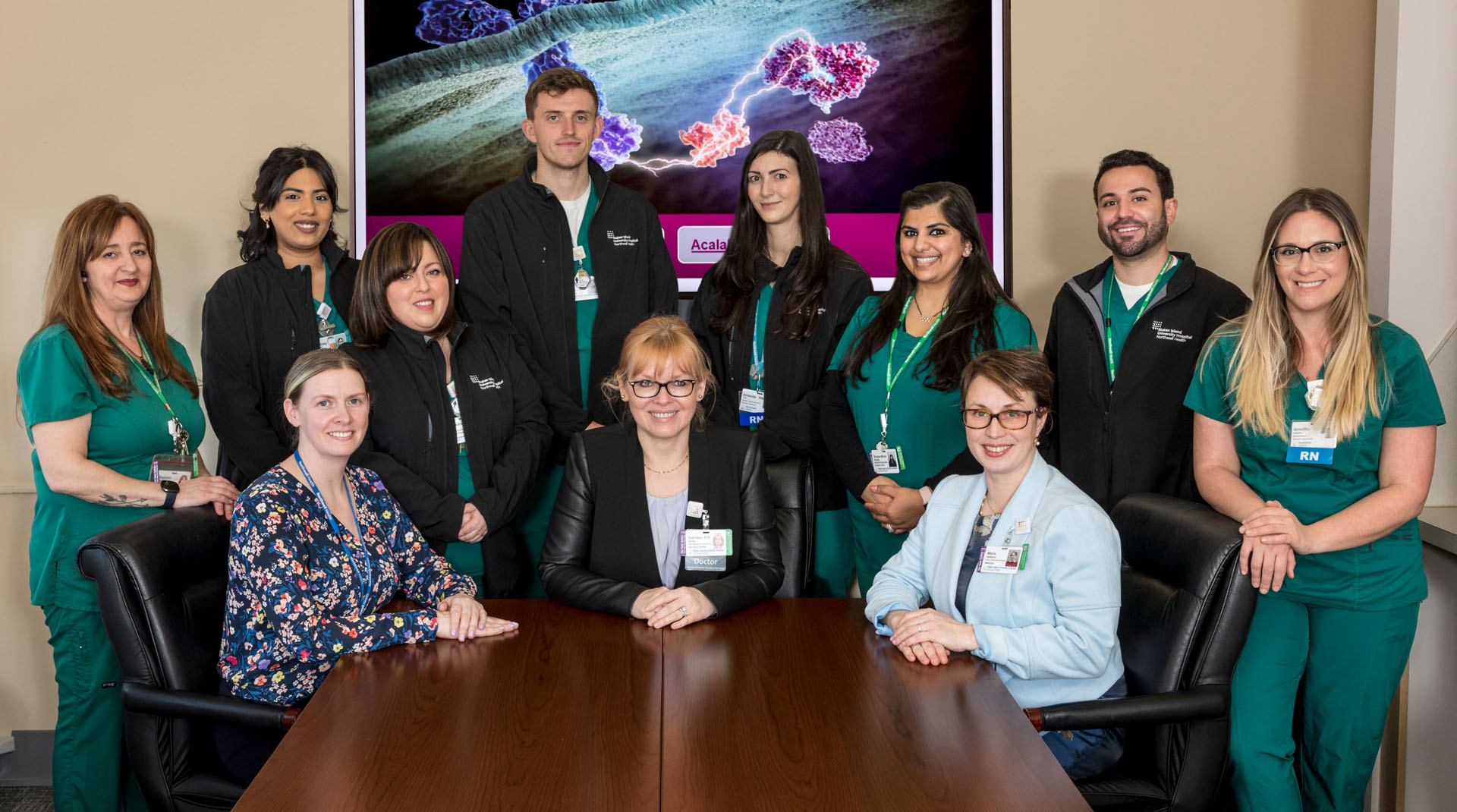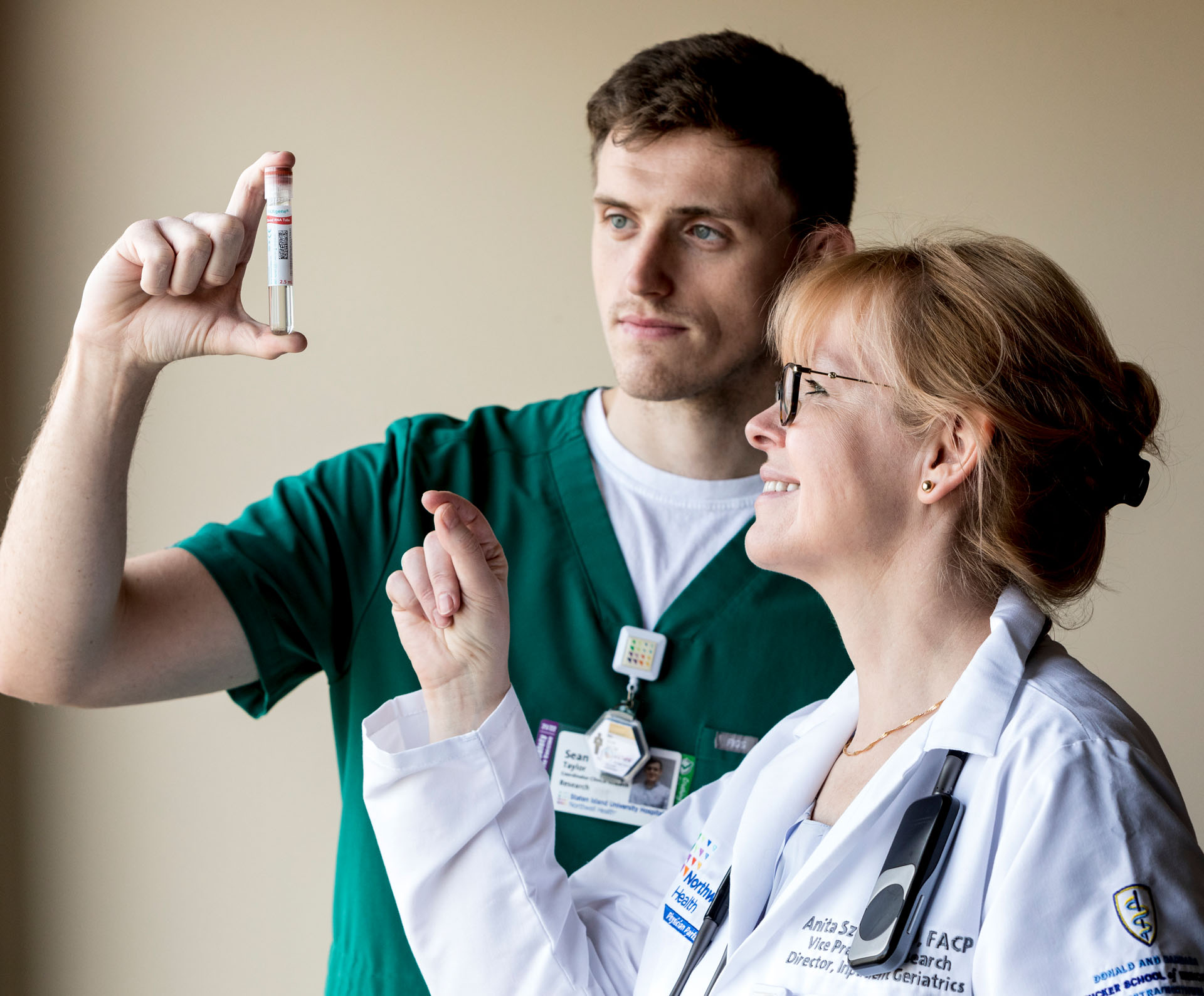AN INSIDE LOOK INTO THE WORLD CLASS RESEARCH INITIATIVES AT SIUH, AND THE PHYSICIANS COMMITTED TO FORWARDING THE FUTURE OF CARE FOR ALL OF STATEN ISLAND’S RESIDENTS
BY AMANDA McCOY • PHOTOS BY AMESSE PHOTOGRAPHY
Since its founding in 1861 (then under the moniker the Samuel R. Smith Infirmary) Staten Island University Hospital has been a community focused institution, committed to bringing world-class care and innovation to its Staten Island neighbors. Today, the 668-bed teaching hospital is a sweeping operation, spanning two bustling campuses plus several satellite health centers and nine highly specialized units, including the Heart Institute, the Florina Cancer Institute, and the Regional Burn Center. The hospital has also built a close collaborative relationship with Northwell’s prestigious Feinstein Institutes for Medical Research. Though SIUH has grown into one of the largest healthcare institutions in the greater New York City metropolitan area, SIUH’s leaders and physicians maintain their community-focused ethos, and one way the hospital is championing both the quality of and access to care is through extensive academic and clinical research.

“We want to raise awareness of clinical research conducted at SIUH among Staten Islanders and facilitate our patients’ access to novel interventions available only through clinical trials,” noted Anita Szerszen, DO, FACP, vice president of the SIUH Department of Research. “We currently have more than 350 ongoing research studies, including over 50 open clinical trials and up to 30 new to open this year. I think most Staten Island residents aren’t aware of these statistics.”
Double board certified in geriatric and internal medicine, Dr. Szerszen officially joined SIUH’s Research Department in May 2021, though she’s been involved in clinical research initiatives since 2008, developing research programs and serving as a research mentor for medical residents and students. She is one of the (and only female) chairs of the Northwell Health Institutional Review Board, which serves to protect research participants’ rights and welfare before and during research studies.

Within the department, Dr. Szerszen is joined by Melissa Panzo, RN, MSN, senior director of operations, and Amanda Tice, RN, clinical research manager, along with a team of research fellows, coordinators, and project managers, each “integral to the expansion of our clinical trial program.” The initiatives are comprehensive, spanning both academic studies and clinical trials in a wide range of disciplines, from internal medicine, surgery, gynecology, and pediatrics to emergency and critical care.
“We have so many incredibly talented physicians taking on new clinical research studies right now,” she continued. “Dr. Meekoo Dhar, an oncologist, is the SIUH lead for the multi-center study of the treatment of recurrent endometrial cancer. Dr. Eleny Romanos-Sirakis, a pediatric hematology oncology specialist, is evaluating the neurocognitive function in children with sickle cell disease. The SIUH-trained electrophysiologist, Dr. Harout Yacoub, serves as the principal investigator of the study that assesses automated, artificial intelligence-based software for quantifying plaques in coronary arteries of the heart.”

During the pandemic, clinical trials were paramount in providing novel treatments for patients with severe infection from COVID-19. “Melissa Panzo and Meagan Sills, SIUH deputy executive director, were critical in ensuring Staten Islanders had access to novel treatments against COVID-19 infection that were available only through clinical trials during the height of the COVID pandemic,” said Dr. Szerszen. “Clinical trials evaluated Tocilizumab in hospitalized patients with severe COVID-19 infection; convalescent plasma in patients with severe and life-threatening COVID-19 infection; and Remdesivir’s effect on recovery from COVID-19 infection.”
The department also facilitated the HEP-COVID randomized trial to assess the role of blood thinners in the prevention of clots, which is common in severe COVID-19 infection. This trial was conducted at 12 sites throughout the U.S., and SIUH saw the second highest rate of patient recruitment. The data and findings were shared with the World Health Organization and published in the Journal of the American Medical Association. “We are grateful to our patients who, as research participants, contributed to the fight against the COVID pandemic,” she said.
A particular area of passion for Dr. Szerszen is expanding access to trials and identifying gaps in clinical care for patients with socioeconomic disadvantages.
“We want to ensure equitable access to research for all Staten Island residents, and change the conversation from disease focused to health focused,” she said. “This should not be a privilege. We have such a diverse community on Staten Island, and we want to make sure we reach ethnic minorities and those with language barriers and socioeconomic disadvantages. As physicians, we have an obligation to make access to care easier, including clinical research. To paraphrase the late Paul Farmer, everybody should have access to clinical research and it shouldn’t be a big deal.”
The department’s efforts to expand access on the Island are manifold. Clinical trials have been recently extended to both campuses, and through telemedicine technologies, the hospital has been able to conduct virtual clinical trials, including offering cardiology interventions at a patient’s home (a first for SIUH). The team is working to improve remote patient monitoring programs to forward functional recovery from hospital to home. Dr. Szerszen is also leading collaborative efforts with community-based organizations to conduct educational sessions with local residents.

“We want to get into communities not only to make people more familiar with the options open to them, but also to give them an opportunity to ask questions,” she said. “We hope to conduct these sessions quarterly.”
In addition to making patient enrollment more inclusive, SIUH is actively working to expand the leadership of its clinical trials.
“Overall, there’s a huge gap in female-led studies,” she said. “Currently 30% of researchers are women. We are actively seeking out new female physicians to lead clinical trials, as they have much expertise and insight to bring to the table. The same is true in clinical trial enrollment. Just as there’s a disparity in race, there is in gender as well. Many cardiology trials have women underrepresented when their symptoms look different from men. We are bringing much-needed change to ensure everyone is represented.”

SIUH Department of Research
475 Seaview Avenue / 718.226.9000 / siuh.northwell.edu
